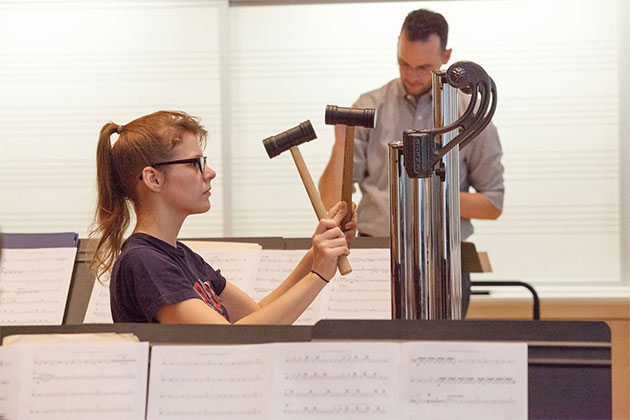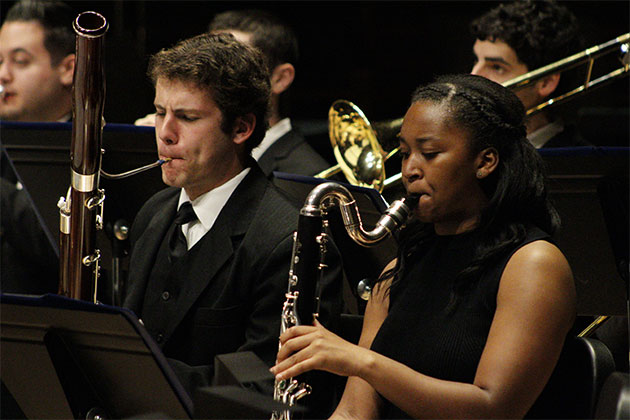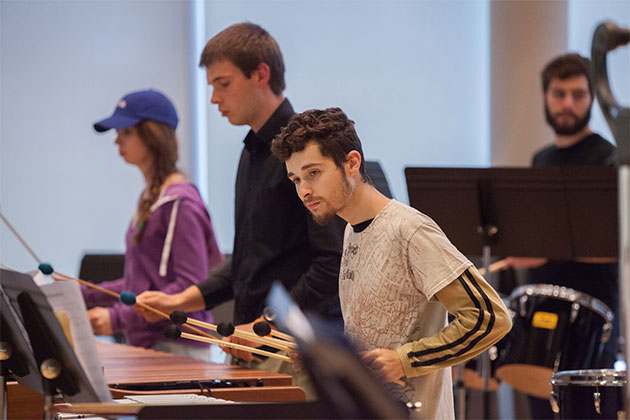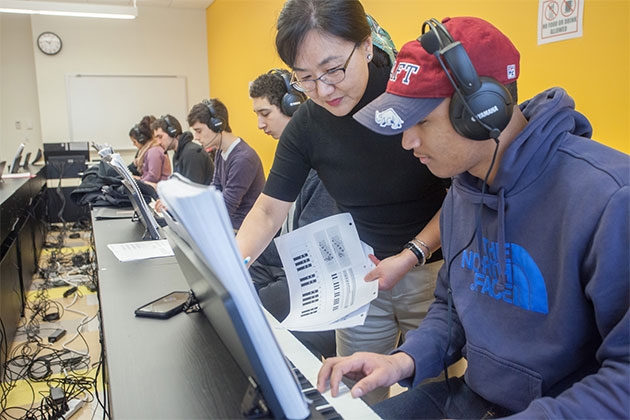Housed in the state-of-the-art Fine Arts Instructional Center, Eastern’s Music program provides theoretical and hands-on opportunities that emphasize the history, theory, performance, and criticism of music and musicians from Western and non-Western traditions. Three concentrations are available — Performance; Musicology: History, Composition and Criticism; and Music Industry and Leadership. Students benefit from many ensembles, personal instruction on a variety of instruments and voice types, and a variety of facilities: a 400-seat concert hall, a proscenium theater, a studio theater, two performance labs, a piano lab, and several graphic design classrooms. A Music minor is also available.
- Apply
- Visit
- Request Info
- Give










